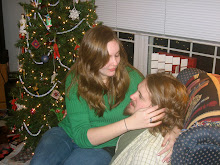She walked up to the man.
"Do you seek death? Do you mock it? I will not waver."
She stared into his eyes, her gaze seeping into his resolve. "I seek it no more than any."
"Then leave him for the scavengers." Exasperated.
"He is my brother. What he has done does not change that."
The man looks at her. Just a girl, yet so brash. "Then what are you here for? What is it you want?"
"I want to make a bargain. I want my brother buried. You want to be the strong ruler, who doesn't make exceptions for anyone, and holds a firm grip on the control over his people. This can be achieved."
"How?"
"My sister wants the same as I, but she won't bargain. She was always the headstrong one. I will coax her into attempting a burial. You stop her, punish her, then feel compassion for her cause. You let my brother remain buried, and yet you showed that you will enforce your decrees."
"If the plan doesn't go exactly according to plan, I have to go through with the rest as ruler, and that may result in unwelcome consequences."
"Just play your part, and it will be fine. Do a good job and I will lavish you with treasures...very special treasures."
The man was interested. "What sort of treasures do you speak of?"
Ismene leaned in and kissed him. "Just do what I said, and you will find out."
Her suggestive grin disappeared as she turned away from him. Of all the men I have to fool, she thought, it has to be that ugly creep. But with Antigone out of the way...
4 years ago
